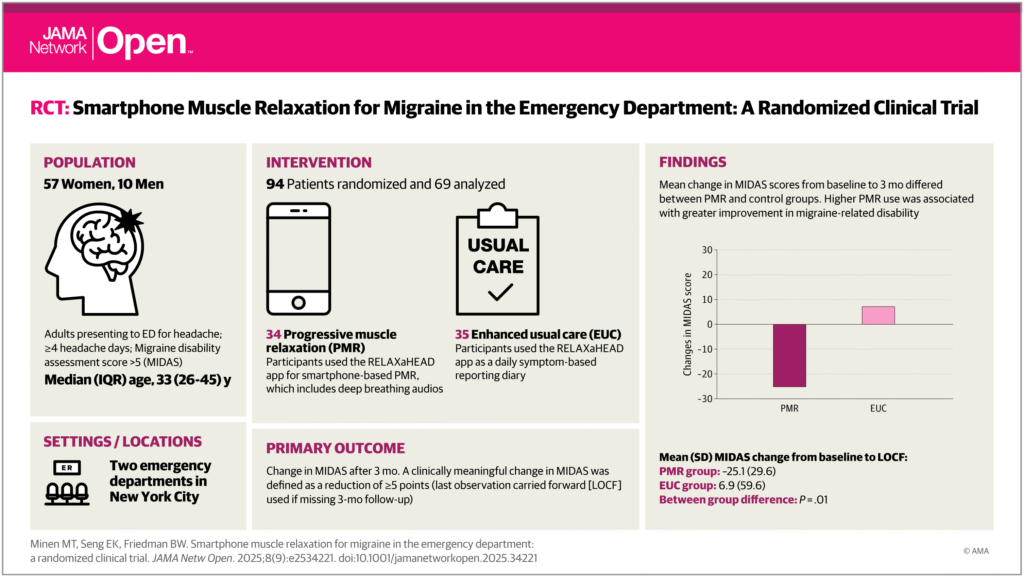Researchers at NYU Langone Health have found that a smartphone-based relaxation program can significantly reduce migraine-related disability among patients who seek emergency care for severe headaches. The program, called RELAXaHEAD, guides users through progressive muscle relaxation (PMR), a technique that involves systematically tensing and relaxing different muscle groups to reduce stress and physical discomfort.
In the study, 90 patients who visited the emergency department for migraines were randomly assigned to either use the app daily for 90 days or receive standard care without the app. Those who used RELAXaHEAD reported a 34 percent reduction in migraine-related disability, as measured by the Migraine Disability Assessment Scale (MIDAS). They also experienced fewer headache days and improved overall well-being.
The app includes audio instructions for PMR, a headache diary, and reminders to encourage consistent use. Researchers observed that patients who engaged with the app more frequently saw greater improvements, suggesting that regular practice of relaxation techniques can help manage migraine symptoms over time.
Migraines are one of the most common reasons people visit emergency departments, and they often result in significant disability and missed work or school days. Traditional treatments focus on medication, but behavioral therapies like PMR have shown promise in reducing the frequency and severity of attacks. However, access to these therapies is often limited. By offering a digital solution, RELAXaHEAD provides a low-cost, accessible way for patients to manage their condition outside of clinical settings.
Article from NYU Lagone: Smartphone-Based Relaxation Program Reduces Disability for Emergency Department Migraine Patients
Abstract in JAMA Network Open: Smartphone-Based Muscle Relaxation for Migraine in the Emergency Department

